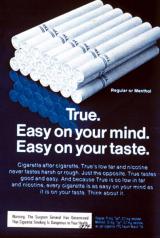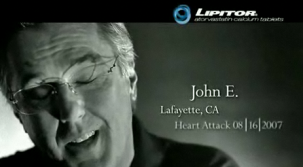 The U.S. Supreme Court opened its 2008-2009 session today by hearing a case about whether cigarette makers have defrauded smokers with implied claims about the relative safety of "light" and "low tar" cigarettes. At issue is the question of preemption, a legal doctrine that holds that federal laws can take precedence over some state laws. The tobacco companies are arguing that they should not be held responsible for labeling and advertising that was approved by the Federal Trade Commission (FTC). The FTC, which has long required that cigarette packs be labeled as to how much "tar" and nicotine they deliver, argues that the agency itself was fooled because tobacco companies hid internal research data that showed smokers did not benefit from switching to light or low tar cigarettes. In August 2006, U.S. District Court Judge Gladys Kessler, in the landmark U.S. Department of Justice case against the industry, ruled that cigarette makers purposely misled smokers into believing that light cigarettes were more safe than regular cigarettes, and now more than 30 class action lawsuits on the issue of the tobacco industry's "light" and "low tar" cigarette fraud are currently pending across the U.S. The Supreme Court's ruling in this case could either affirm or invalidate all of them.
The U.S. Supreme Court opened its 2008-2009 session today by hearing a case about whether cigarette makers have defrauded smokers with implied claims about the relative safety of "light" and "low tar" cigarettes. At issue is the question of preemption, a legal doctrine that holds that federal laws can take precedence over some state laws. The tobacco companies are arguing that they should not be held responsible for labeling and advertising that was approved by the Federal Trade Commission (FTC). The FTC, which has long required that cigarette packs be labeled as to how much "tar" and nicotine they deliver, argues that the agency itself was fooled because tobacco companies hid internal research data that showed smokers did not benefit from switching to light or low tar cigarettes. In August 2006, U.S. District Court Judge Gladys Kessler, in the landmark U.S. Department of Justice case against the industry, ruled that cigarette makers purposely misled smokers into believing that light cigarettes were more safe than regular cigarettes, and now more than 30 class action lawsuits on the issue of the tobacco industry's "light" and "low tar" cigarette fraud are currently pending across the U.S. The Supreme Court's ruling in this case could either affirm or invalidate all of them.

 The U.S.
The U.S. 
 The
The